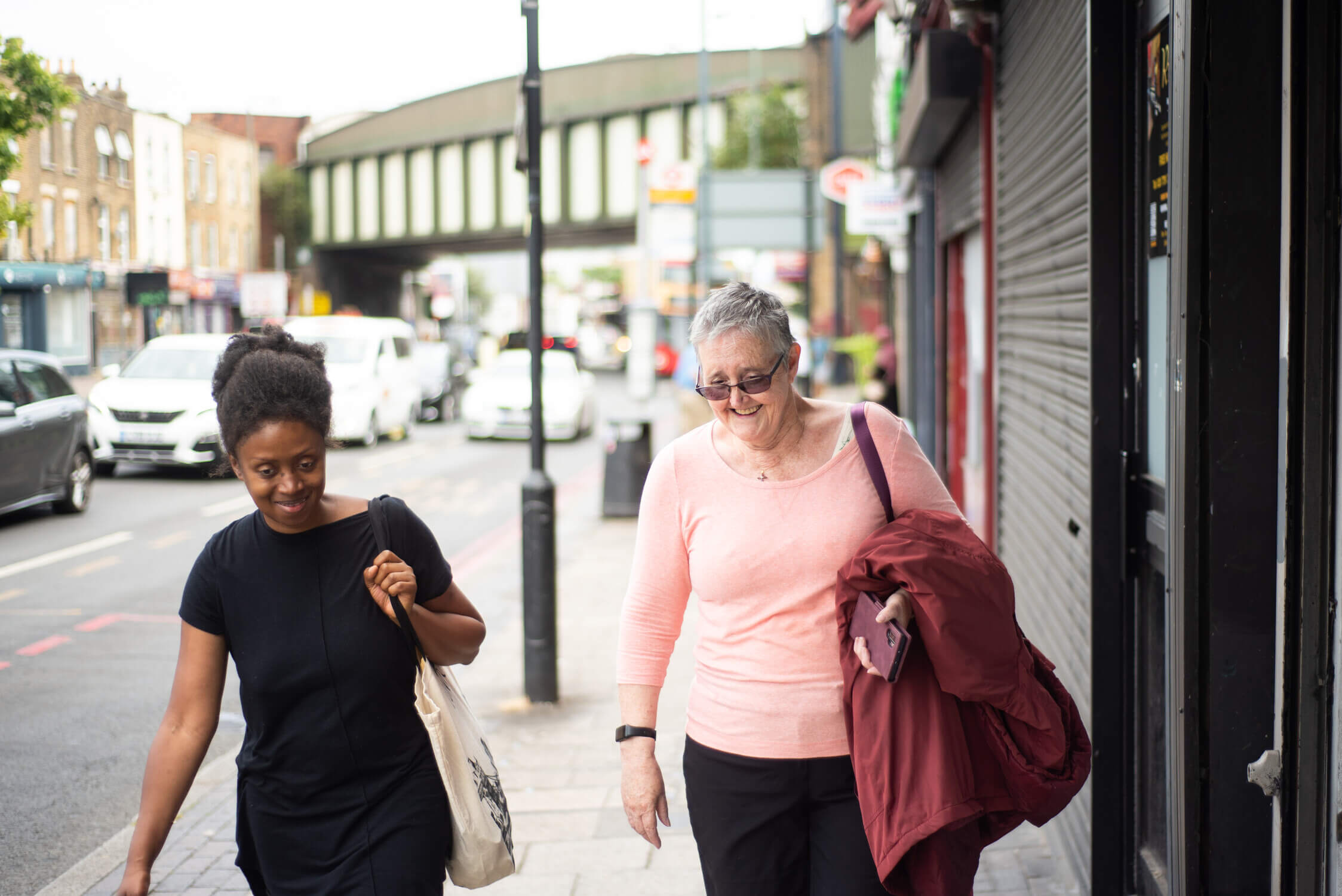Carers rights day 2024 – Get the support you’re entitled to
Tags
ArticlesVisiting care
Each year Carers UK holds Carers Rights Day to raise the voice of the UK’s 5.7 million unpaid carers and raise awareness about caregiving rights. We’ve looked at the rights being championed this year, and the steps you can take to make your caring role a little easier.
Your right to unpaid carers leave and flexible working
Balancing caring responsibilities with paid employment is often one of the biggest challenges faced by family carers. However, you have a legal right to a certain amount of unpaid leave each year, to provide or arrange care for your loved one.
To qualify, the person you’re caring for will need to be either –
- living with a condition that is expected to need care for at least three months
- living with a a disability (as defined in the Equality Act 2010)
- requiring care due to their age
The amount of unpaid leave you’re entitled to will depend on how often you work. If you work full time i.e Monday to Friday, you’ll be entitled to up to one week of leave every 12 months. however if you work three days a week for example, you’ll be entitled to three days unpaid leave every 12 months.
If you have an irregular working pattern, for example you work shifts and have a different rota each week, your employer will work out your leave allowance by adding up the total number of days you’ve worked (or are expected to work if you’ve been at the company less than a year) and divide the total by 52.
To take carers leave, you’ll need to give notice to your employer as per their guidelines. They can’t refuse carers leave, but may ask you to delay it if it’s likely to cause significant disruption to the business. If you experience any direct discrimination or push back when requesting carers leave, you can find support through ACAS – the Advisory, Conciliation and Arbitration Service.
89% of carers think that an understanding employer is the most important workplace support.
It’s also worth asking your employer about a flexible working arrangement if you’re likely to be caring for a loved one for a while. In April the Government passed a law that gives you the right to do this from day one of a job.
There are two types of request to know about –
Statutory – you can only make this request after working for your employer for 26 consecutive weeks, and can only make one request every 12 months. Your employer is then obliged to either accept or open up negotiation.
Non-statutory – You can make this request at anytime – even on your first day on the job. However your employer is not obliged to agree or discuss your request, although it’s rare that employers will refuse a request without explaining why.
There are a lot of Carer friendly employers out there, but if you do come up against issues balancing your work with your caring responsibilities and your employer is making things difficult, ACAS can again offer a wide range of support and guidance.
Your right to be recognised as a carer
If you’re providing unpaid care it’s important your responsibilities are recognised both by the social services department of your local council and your GP. This can help you get access to essential support services in your local area.
If you’re in England or Wales ask your local authority for a Carers Assessment. If you’re in Scotland, this assessment may be called an Adult Carer Support Plan, but it serves the same purpose.
You’ll be asked some questions about –
- What your role as a carer is like how you feel about caring
Whether you’re able to continue providing care - Your health
- Your work
- What will happen if you’re unable to care for some reason
It’s not a big formal interview, but it is an opportunity for you to be really honest about how caring impacts your life and any worries you have. Based on your answers your council will assess whether you’re eligible for extra help, such as specialist training, mental health support, or practical help with things like housework.
For more on Carers Assessments, take a look at our guide.
Many carers also find it helpful to inform their GP that they’re a carer. Some GP surgeries have a special form for this and will be able to add that you have caring responsibilities to your patient record.
Doing so can give you access to more flexibility when making appointments for yourself. Your GP may also be able to provide helpful advice and connect you to local carer support groups, offer you a free annual flu jab, or refer you to services that can help you take a free or discounted break when you need one, such as Care Free, and After Umbrage.
Your right to protection against discrimination
If you are looking after an elderly or disabled person, there are laws to protect you from direct discrimination or harassment. This is because the cared-for person is protected by their age or disability i.e a ‘protected characteristic, and you are therefore covered by association.
However sadly some carers do still experience discrimination. For some this may mean an employer punishing them for taking time or, or refusing a job offer at all due to their caring responsibilities. Some carers may also be given worse service out and about than non-carers.
If you experience discrimination you have a right to fight it. The first step is to take note of where and what happened, and seek legal advice from an expert, such as the Equality Advice & Support Service.
It’s also recommended to report discrimination to the place where you experienced it, informally at first, and then formally if you don’t receive the right resolution.

Your right to support that makes day-to-day life easier and more enjoyable
Providing unpaid care is full of day-to-day challenges whether you’re caring for elderly parents, an extended family member, or a friend. And, while there’s a lot of help out there, finding it can take lots of time, and the application processes aren’t always the smoothest. It’s why we’ve complied some key sources of support, as well as perks and benefits for carers below.
Being informed while your loved one is in hospital – It’s imperative that you know when a loved one is leaving hospital so that you can plan accordingly. Last minute discharge can put a lot of undue pressure on family carers, however they’re not always kept informed.
Carers UK has a range of handy factsheets on how to navigate time in hospital. You can also check out Elder’s guide to what do do when a loved one is in hospital.
Carers Allowance – The Autumn Budget announced that the earnings cap for carers allowance would increase to £151 a week after tax. This is the biggest increase since the 1970s, and means more people may be eligible for the £81.90 a week benefit. If you work part time and earn under the new threshold it’s worth applying.
Carers card – For under £10 for two years you can sign up for a Carers card, which can offer a few different benefits. For one, it gives you a nationally recognised carer status and can hold in-case-of-emergency details – which can you greater peace of mind day to day. It also gives you access to a carer wellbeing hub and unlocks hundreds of shopping discounts, which can add up to make a real difference.
it's estimated 90% of carers don't hold any type of documentation that shows their status as a carer
Carer forums – Sometimes all you want is to talk to someone else who ‘gets it’. There are a number of brilliant online carer forums offering this vital service. Connect, share experiences and advice, or simply vent about the realities of being unpaid family carers.
- Carers Connect – Set up by Carers UK this forum covers a wide range of caring topics and is a great place to access resources.
- Carers UK online meetups – these virtual events offer carers a chance to connect with each other via video call for mutual support and advice from guest hosts. Visit their website for the latest programme of activities.
- Gransnet – a later life forum with dedicated discussions for unpaid carers.
Parking – Some councils and hospitals offer discounted or free permits and parking spaces for unpaid carers. While this isn’t universal around the UK, we’re hoping it becomes a growing trend. Locations that do currently offer it include –
- Brighton and Hove
- Birmingham City
- London Borough of Waltham Forest
- University Hospitals Plymouth
- Norfolk and Norwich University Hospitals
- Calderdale and Huddersfield NHS Hospitals
Read more

Early stage Alzheimer’s: living with and caring for symptoms
Early-stage Alzheimer’s symptoms – what are they? In the early stages, the impact on someone’s ability to live an independent life is minimal. It’s unlikely

How to care for ageing parents living with dementia
How to Care for Ageing Parents With an increasingly ageing population, many of us will have to face questions regarding the care of our parents

What is a dementia clock?
What is a dementia clock? Over 850,000 people are living with dementia in the UK. While there is no known cure, people have found many

16 Stimulating Dementia Activities To Try With Your Loved One
It’s vital for those living with dementia and Alzheimer’s to keep the mind engaged. The following 16 activities can help.

Middle stage Alzheimer’s | living with and caring for symptoms
Middle-stage Alzheimer’s – what you need to know The middle stage of Alzheimer’s disease is when symptoms become more obvious than in early-stage Alzheimer’s. A

Eight facts about lewy body dementia
Eight Facts about Lewy Body Dementia 1. It’s a fairly common type of dementia Over 100,000 people in the UK are affected by Lewy